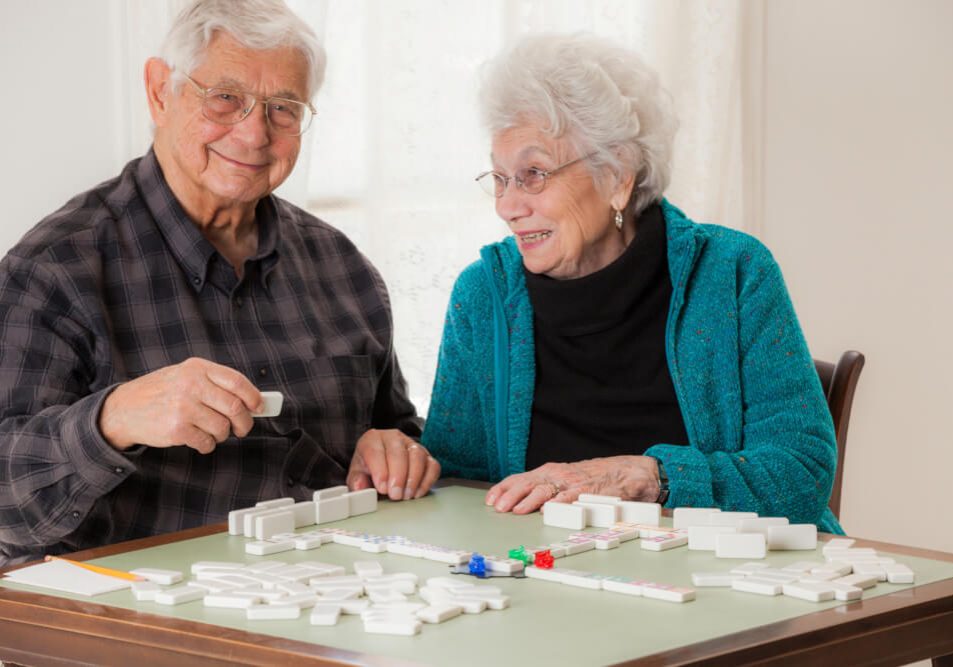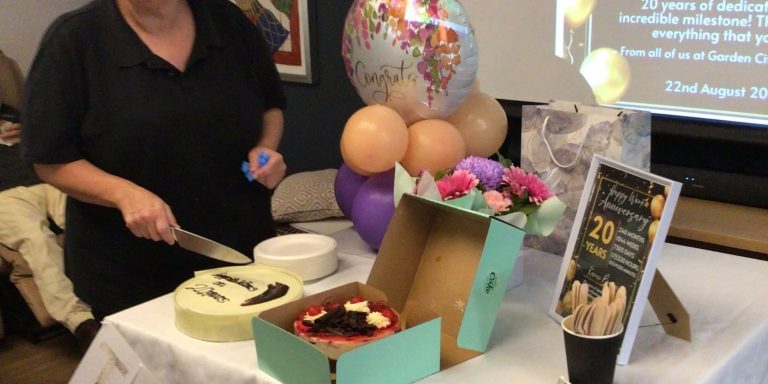Cognitive stimulation therapy (CST) is a structured, evidence-based intervention program aimed to boost quality of life for people living with dementia.
CST is generally delivered in small groups and sessions are designed and run by trained occupational therapists, who incorporate a range of fun activities to stimulate the brain, thinking and memory, and to encourage social interaction. CST can also be delivered as a 1-on-1 program.
Engagement in the therapy programme has been shown to improve the overall well-being of participants and slow the progression of cognitive loss in some instances.
Through AQ Health, CST is offered over a period of 10 weeks, with participants attending a weekly session at one of AQ’s respite centres, which are located across Brisbane, Ipswich, and South Coast. Personalised 1-on-1 sessions are also an option.
Activities are tailored to the level of cognitive ability of the participants, to provide the right amount of challenge, but in a supportive and non-threatening environment. Examples of activities include:
- Word association games
- Reminiscence sessions
- Discussion of current events
- Picture-based activities
- Creative arts
- Music
- Physical exercises
- Cooking or baking activities

Madison Wilson, Brisbane based occupational therapist, shares that, “We do things that spark reminiscence, for example we recently did activities based around the Olympics. We did trivia, quizzes, and we talked about recent events at the Paris Games, as well as getting people to try and see what they could remember from past Olympics.”
Occupational therapist, Sarah Cobbett, who is based in South Coast, adds that, “We try to engage all of the senses when planning the activities, for example we recently had an activity where the participants were given a scent, to guess the smell, and also identify an object in a bag, without seeing it, so relying on their sense of touch.”
Feedback regarding CST has been incredibly positive, from both participants and caregivers alike.
“The carer feedback we receive is that they are much more settled at home, and they can recall what they’ve been doing,” Sarah says. “There’s a lot of laughter – one of our participants recently called the program ‘school’, and there’s a lot of humour amongst the participants as well.”
“The clients look forward to the sessions, and they remember who we are,” adds Madison. “Being in small groups means it’s more engaging.
“Behaviour wise, I had one person who, of an afternoon, was very unsettled. But after doing this program, he was more tired at the end of the day, and his carer said he was not having those same unsettled behaviours.
“The results are great; I have participants who remember my name each week.”
In addition to the positive impacts on cognition, the therapy also provides benefits through positive social interaction in the group, reducing potential loneliness, and boosting confidence and self-esteem.
While CST is aimed at people in the early stages of their diagnosis, there are still benefits to engaging one-on-one with those in later stages of dementia as well.
“Even when a person is in the later stages of the disease, you can see glimmers on their face – you know something has registered,” Sarah says.
“They can still benefit from being in a group setting and getting that social interaction.”
To find out more about AQ Health’s CST program email aqhealth@alzqld.org.au or call 1800 692 743.







